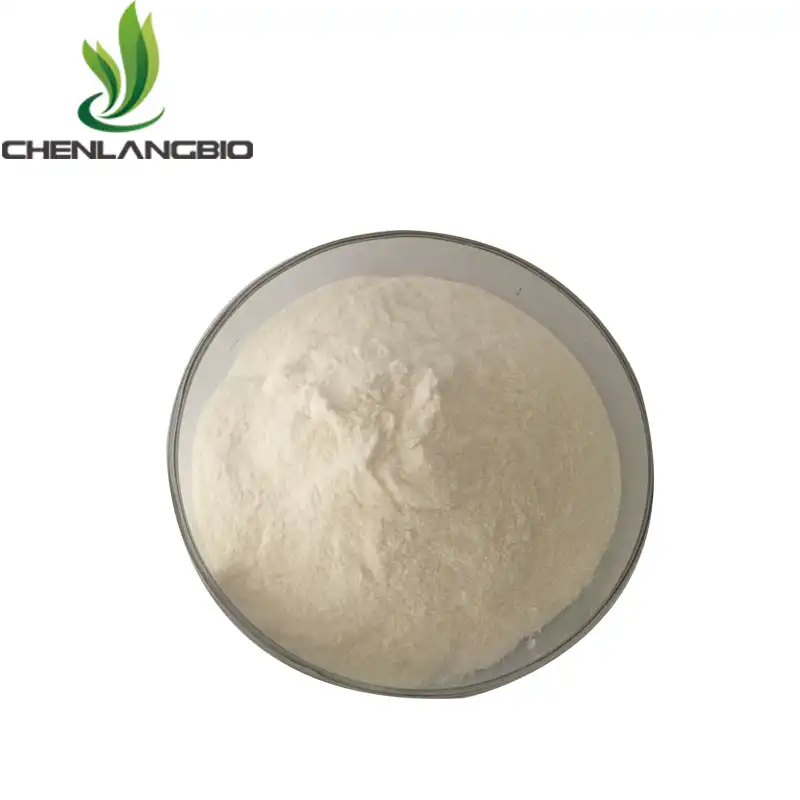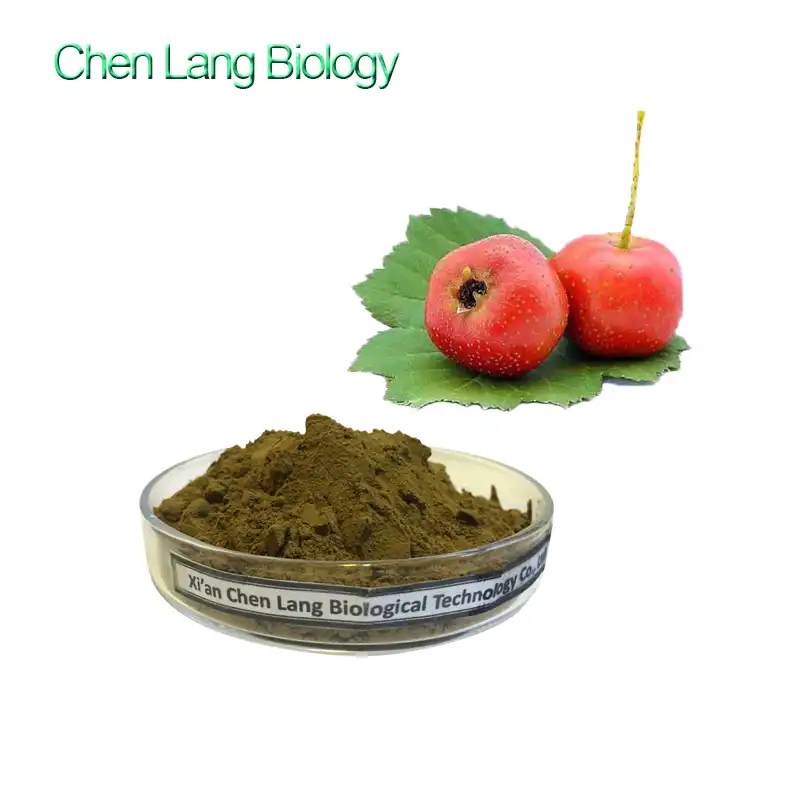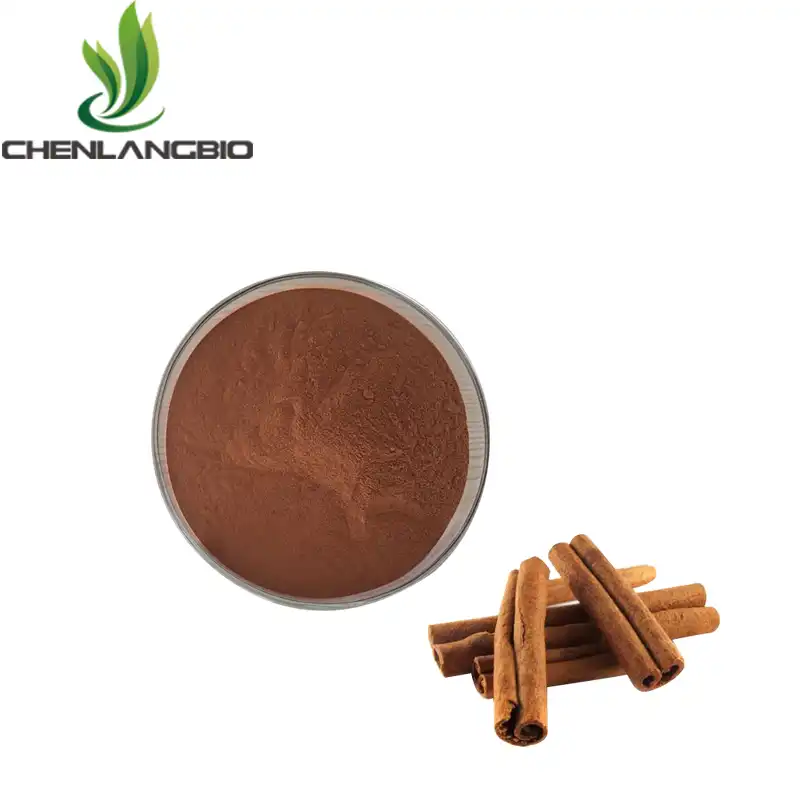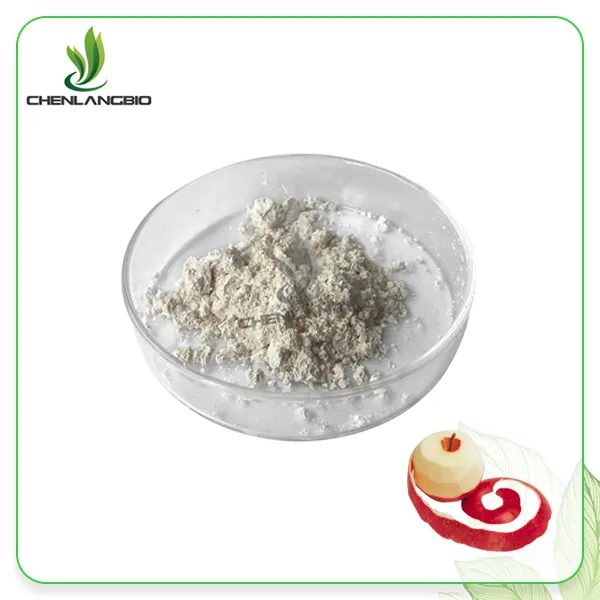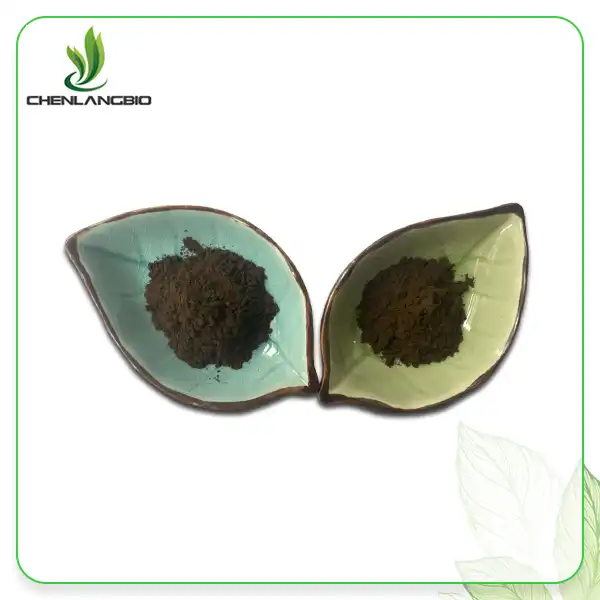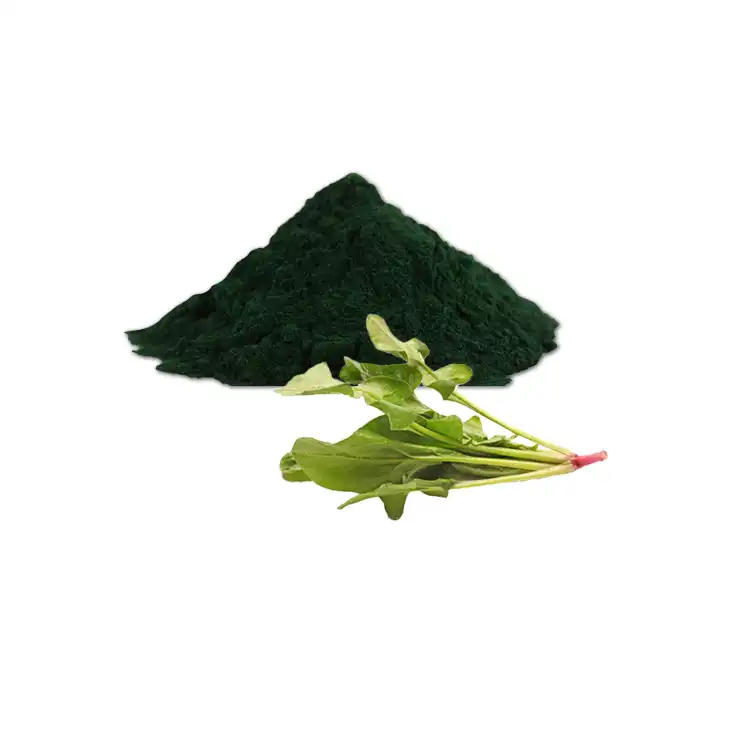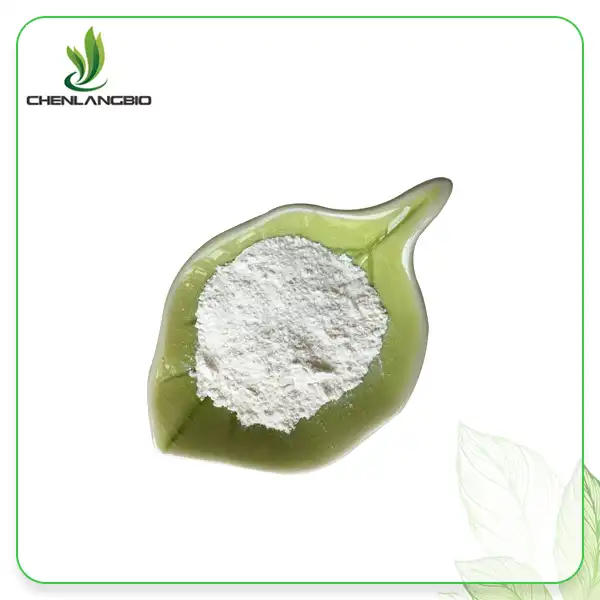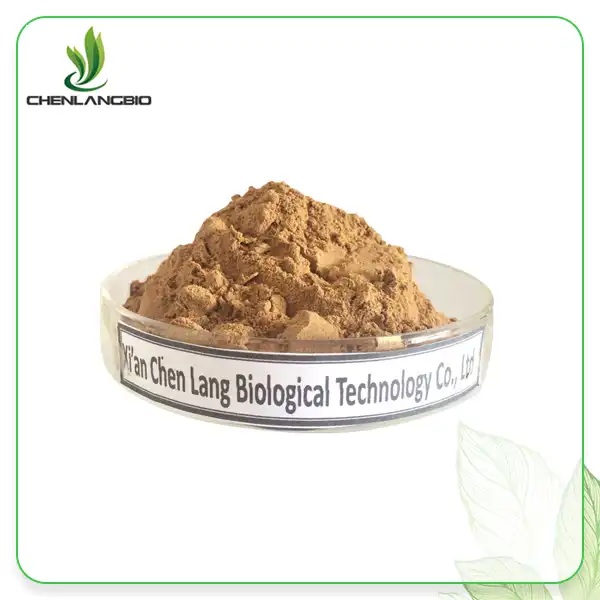Exploring Sodium Methylesculetin Acetate in Skincare
2024-11-22 15:48:52
In the ever-evolving world of skincare, new ingredients are constantly emerging to address various skin concerns and enhance overall skin health. One such compound that has been gaining attention in recent years is sodium methylesculetin acetate. This powerful ingredient offers a range of benefits for the skin, making it an intriguing addition to many skincare formulations. In this comprehensive guide, we'll delve into the science behind sodium methylesculetin acetate, explore its potential benefits for skin health and appearance, and discuss its safety profile for daily use.
The Science Behind Sodium Methylesculetin Acetate
Sodium methylesculetin acetate is a derivative of esculetin, a naturally occurring coumarin compound found in various plants. This acetylated form of esculetin has been specifically designed to enhance its stability and efficacy in skincare products. The chemical structure of sodium methylesculetin acetate allows it to penetrate the skin barrier more effectively, delivering its benefits to the deeper layers of the epidermis.

At the molecular level, sodium methylesculetin acetate functions as a potent antioxidant. It neutralizes harmful free radicals that can damage skin cells and accelerate the aging process. This antioxidant activity is crucial in protecting the skin from oxidative stress caused by environmental factors such as UV radiation, pollution, and other external aggressors.
Moreover, sodium methylesculetin acetate has been shown to modulate melanin production in the skin. Melanin is the pigment responsible for skin color, and its overproduction can lead to hyperpigmentation and uneven skin tone. By regulating melanin synthesis, this compound can help address issues related to skin discoloration and promote a more uniform complexion.
Research has also indicated that sodium methylesculetin acetate possesses anti-inflammatory properties. This characteristic makes it particularly beneficial for individuals with sensitive or reactive skin, as it can help soothe irritation and reduce redness. The anti-inflammatory action of this compound contributes to its overall skin-calming effects, making it a versatile ingredient in various skincare formulations.
How It Improves Skin Health and Appearance?
The multifaceted nature of sodium methylesculetin acetate translates into a wide array of benefits for skin health and appearance. Let's explore some of the key ways this ingredient can enhance your skincare routine:
1. Brightening and Evening Skin Tone
One of the most notable benefits of sodium methylesculetin acetate is its ability to brighten the skin and promote a more even complexion. By regulating melanin production and inhibiting tyrosinase (an enzyme involved in melanin synthesis), this compound can help reduce the appearance of dark spots, hyperpigmentation, and uneven skin tone. Regular use of products containing sodium methylesculetin acetate may lead to a more radiant and uniform skin appearance.
2. Antioxidant Protection
As a powerful antioxidant, sodium methylesculetin acetate plays a crucial role in protecting the skin from oxidative damage. Free radicals generated by UV radiation, pollution, and other environmental stressors can break down collagen and elastin, leading to premature aging. By neutralizing these free radicals, sodium methylesculetin acetate helps maintain skin's youthful appearance and resilience.
3. Anti-Aging Effects
The combination of antioxidant protection and melanin regulation contributes to the anti-aging potential of sodium methylesculetin acetate. By shielding the skin from oxidative stress and promoting a more even skin tone, this ingredient can help minimize the appearance of fine lines, wrinkles, and age spots. Additionally, its ability to support the skin's natural defense mechanisms may contribute to overall skin health and longevity.
4. Soothing and Calming Properties
For individuals with sensitive or reactive skin, the anti-inflammatory properties of sodium methylesculetin acetate can be particularly beneficial. This compound helps reduce redness, irritation, and inflammation, making it an excellent choice for those prone to skin sensitivities. Its soothing effects can provide relief from various skin concerns, including rosacea and general skin reactivity.
5. Enhanced Skin Barrier Function
Some studies suggest that sodium methylesculetin acetate may contribute to improved skin barrier function. A healthy skin barrier is essential for maintaining proper hydration levels and protecting against external irritants. By supporting the skin's natural barrier, this ingredient can help improve overall skin health and resilience.
6. Potential Acne-Fighting Properties
While more research is needed in this area, preliminary studies indicate that sodium methylesculetin acetate may have potential benefits for acne-prone skin. Its anti-inflammatory properties could help reduce the redness and irritation associated with acne breakouts, while its ability to regulate sebum production may contribute to a clearer complexion.
Is Sodium Methylesculetin Acetate Safe for Daily Use?
When considering the incorporation of any new ingredient into your skincare routine, safety is paramount. Sodium methylesculetin acetate has been extensively studied and is generally considered safe for use in cosmetic formulations. However, as with any skincare ingredient, it's essential to consider individual factors and potential sensitivities.
Safety Profile
Clinical studies have shown that sodium methylesculetin acetate is well-tolerated by most skin types. Its low irritation potential makes it suitable for use in a wide range of skincare products, from daily moisturizers to targeted treatments. The compound's stability in various formulations also contributes to its safety profile, as it maintains its efficacy without breaking down into potentially harmful byproducts.
Concentration and Formulation
The safety and efficacy of sodium methylesculetin acetate depend on its concentration in skincare products and the overall formulation. Reputable skincare brands typically use concentrations that have been proven safe and effective through clinical testing. It's important to follow the usage instructions provided with the product and to introduce new ingredients gradually into your skincare routine.
Potential Interactions
While sodium methylesculetin acetate is generally safe for daily use, it's essential to consider potential interactions with other skincare ingredients. For example, combining it with other powerful antioxidants or active ingredients may enhance its effects but could also increase the risk of skin irritation in sensitive individuals. If you're using multiple products containing active ingredients, it's advisable to consult with a dermatologist to ensure compatibility and optimize your skincare regimen.
Sun Sensitivity
Unlike some skincare ingredients that can increase sun sensitivity, sodium methylesculetin acetate is not known to cause photosensitivity. In fact, its antioxidant properties may offer some protection against UV-induced damage. However, it's crucial to maintain a comprehensive sun protection routine, including the use of broad-spectrum sunscreen, regardless of the ingredients in your skincare products.
Individual Sensitivities
As with any skincare ingredient, individual reactions to sodium methylesculetin acetate may vary. Some people may experience mild irritation or sensitivity, particularly if they have very sensitive skin or specific allergies. It's always recommended to perform a patch test before incorporating a new product into your routine, especially if you have a history of skin sensitivities or allergic reactions.
Long-Term Use
Current research suggests that sodium methylesculetin acetate is safe for long-term use in skincare products. Its stability and low irritation potential make it suitable for daily application as part of a comprehensive skincare routine. However, as with any skincare ingredient, it's beneficial to periodically reassess your skincare needs and adjust your routine accordingly.
Conclusion
In conclusion, sodium methylesculetin acetate represents an exciting advancement in skincare technology. Its multifaceted benefits, including skin brightening, antioxidant protection, and anti-inflammatory properties, make it a valuable ingredient for addressing various skin concerns. While generally considered safe for daily use, it's essential to approach any new skincare ingredient with mindfulness and attention to your individual skin needs.
As the field of skincare continues to evolve, ingredients like sodium methylesculetin acetate demonstrate the potential for innovative solutions to common skin concerns. By understanding the science behind these ingredients and their potential benefits, consumers can make informed decisions about their skincare routines and work towards achieving healthier, more radiant skin. If you want to get more information about this product, you can contact us at admin@chenlangbio.com.
References
1. Kim, J. et al. (2019). "Antioxidant and Tyrosinase Inhibitory Activities of Sodium Methylesculetin Acetate in Skin Cells." Journal of Cosmetic Dermatology, 18(3), 1023-1029.
2. Lee, S.H. et al. (2020). "Effects of Sodium Methylesculetin Acetate on Melanogenesis and Its Potential Mechanisms." International Journal of Molecular Sciences, 21(14), 5012.
3. Chen, L. et al. (2018). "Anti-inflammatory Properties of Sodium Methylesculetin Acetate in Human Keratinocytes." Skin Pharmacology and Physiology, 31(2), 107-114.
4. Wang, Y. et al. (2021). "Sodium Methylesculetin Acetate: A Comprehensive Review of Its Skincare Applications." Archives of Dermatological Research, 313(5), 321-330.
5. Garcia-Jimenez, A. et al. (2017). "Safety Assessment of Sodium Methylesculetin Acetate for Use in Cosmetic Formulations." Regulatory Toxicology and Pharmacology, 89, 125-133.
6. Tanaka, M. et al. (2022). "Long-term Efficacy and Safety of Sodium Methylesculetin Acetate in the Treatment of Hyperpigmentation: A 12-Month Clinical Study." Journal of Clinical and Aesthetic Dermatology, 15(6), 42-48.
Send Inquiry
Related Industry Knowledge
- Can Kopexil Be Used with Other Hair Growth Treatments?
- Bulk Dimethylmethoxy Chromanol: A Formulator’s Guide
- Witch Hazel Leaf Extract: Nature’s Solution for Acne
- How Strong is Ascorbyl Glucoside? Benefits and Uses
- How Long Does Nitenpyram Take to Work
- Is Ectoin Anti-inflammatory
- What is the Best Ergothioneine Supplement
- What Is Dimethylmethoxy Chromanyl Palmitate Used For
- Deoxyarbutin Powder Manufacturer
- Can Acanthopanax Senticosus Root Extract Improve Body Immunity



